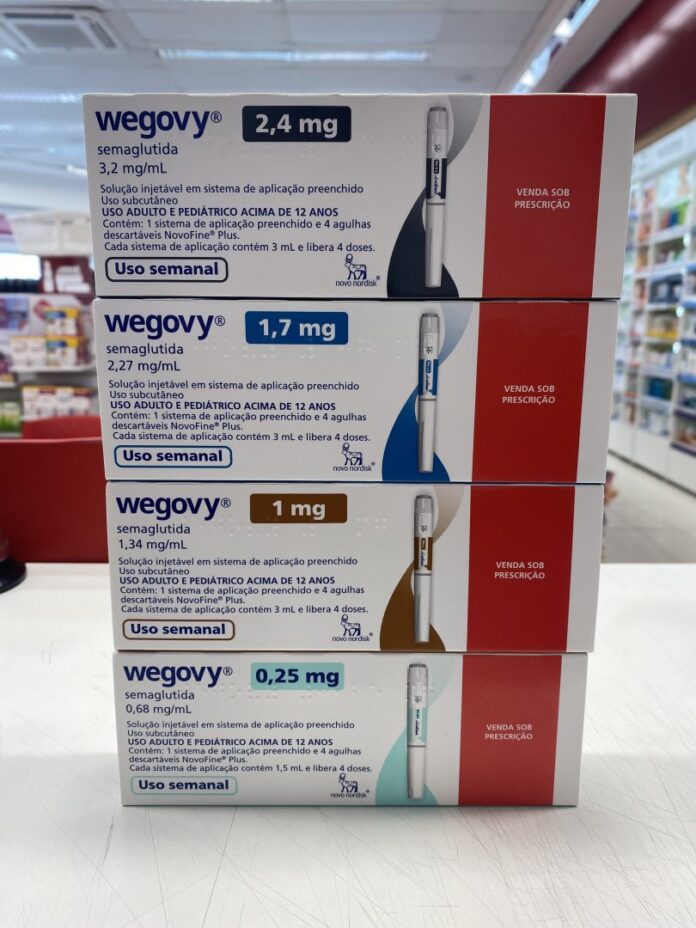
By Stacy M. Brown, NNPA Newswire Senior National Correspondent
As the incoming administration prepares to enact sweeping changes to health policy, including Robert F. Kennedy Jr.’s controversial appointment to lead the Department of Health and Human Services (HHS), the Biden-Harris Administration is addressing a critical health issue: obesity. A new proposal aims to expand Medicare and Medicaid coverage for anti-obesity medications (AOMs), potentially providing millions of Americans access to life-saving treatments.
Obesity, which affects an estimated 42 percent of the U.S. population, is a chronic disease linked to increased mortality and serious conditions such as diabetes, cardiovascular disease, and stroke. Despite recent advancements in obesity treatment, including medications that can reduce heart attack risk and Type 2 diabetes, these drugs remain prohibitively expensive, often costing up to $1,000 per month without insurance.
The Biden-Harris proposal seeks to broaden Medicare and Medicaid coverage for these medications, reducing out-of-pocket costs by up to 95 percent for some enrollees. The expanded coverage could benefit an estimated 3.4 million Medicare beneficiaries and 4 million Medicaid enrollees. “This proposal ensures that Americans can access treatments they need to lead healthier lives without financial burden,” a senior administration official stated.
Kennedy’s Controversial Appointment Raises Questions About the Future of Healthcare
The proposal comes as President-elect Donald Trump’s decision to appoint Kennedy as HHS Secretary has drawn widespread criticism. Kennedy, known for his distrust of pharmaceuticals and promotion of healthcare-related conspiracy theories, has repeatedly criticized the Food and Drug Administration (FDA) for what he calls its “aggressive suppression of psychedelics.” On his podcast, Kennedy described the United States as “the sickest country in the world,” blaming a healthcare system focused on “pills and potions” rather than building immune systems and promoting holistic health.
Kennedy has also advanced the debunked theory that vaccines cause autism, a stance that has alarmed public health officials. Even the New York Post, which has previously praised Kennedy, warned that his confirmation could be disastrous for public health. In a 2023 editorial, the Post highlighted Kennedy’s claim that “all America’s chronic health problems began in one year in the 1980s,” calling his views both unscientific and dangerous.
If confirmed, Kennedy would wield significant power to reshape the healthcare system, with much of his rhetoric on psychedelics and the pharmaceutical industry mirroring that of Elon Musk, who Trump has also tapped for a cabinet position.
Biden-Harris Administration Focuses on Affordable Healthcare
In contrast, the Biden-Harris Administration continues to prioritize accessible healthcare. Since taking office, President Biden has strengthened Medicare, Medicaid, and the Affordable Care Act through measures like the American Rescue Plan Act and the Inflation Reduction Act. These efforts have already delivered significant savings for millions of Americans, including insulin price caps, free vaccines, and a $2,000 annual out-of-pocket cap for prescription drugs starting in 2025.
The proposal to expand AOM coverage builds on this record, aiming to address obesity comprehensively through prevention, treatment, and systemic change. The administration’s National Strategy on Hunger, Nutrition, and Health has already integrated nutrition and obesity counseling into Medicare and Medicaid, targeting diet-related diseases such as obesity.
Looking Ahead
As the U.S. prepares for a dramatic shift in health policy under Trump’s administration, the Biden-Harris Administration’s final actions emphasize reducing costs and expanding access to life-saving treatments. By broadening AOM coverage, millions of Americans could soon have the support they need to address obesity and its related health challenges. The Biden-Harris administration’s efforts starkly contrast to the incoming leadership at HHS, whose unorthodox views and conspiracy theories have sparked significant public concern.
“We can lower drug prices and improve health outcomes for Americans,” Biden stated.

